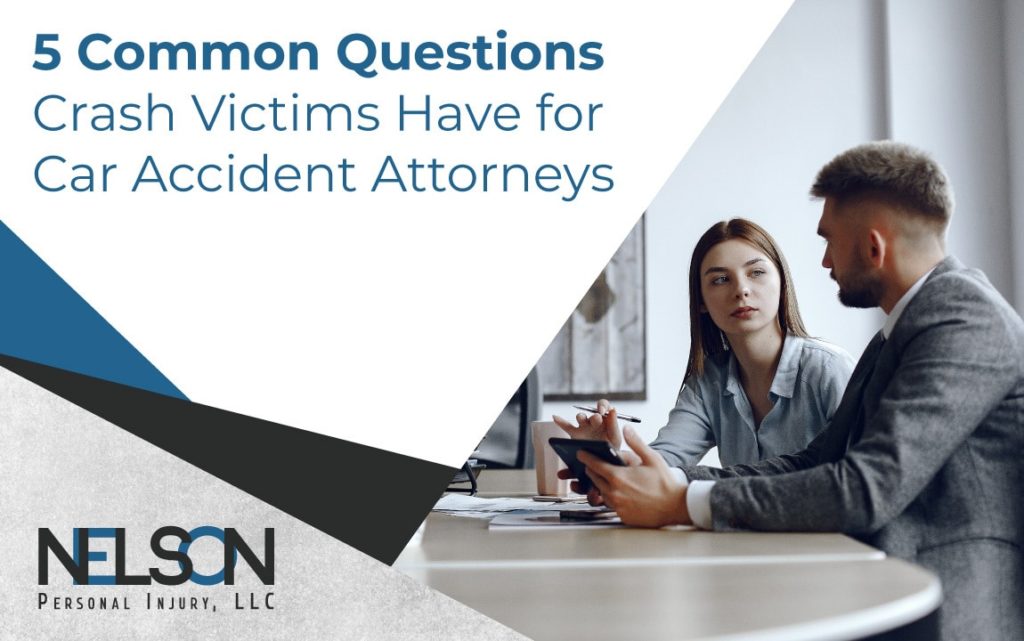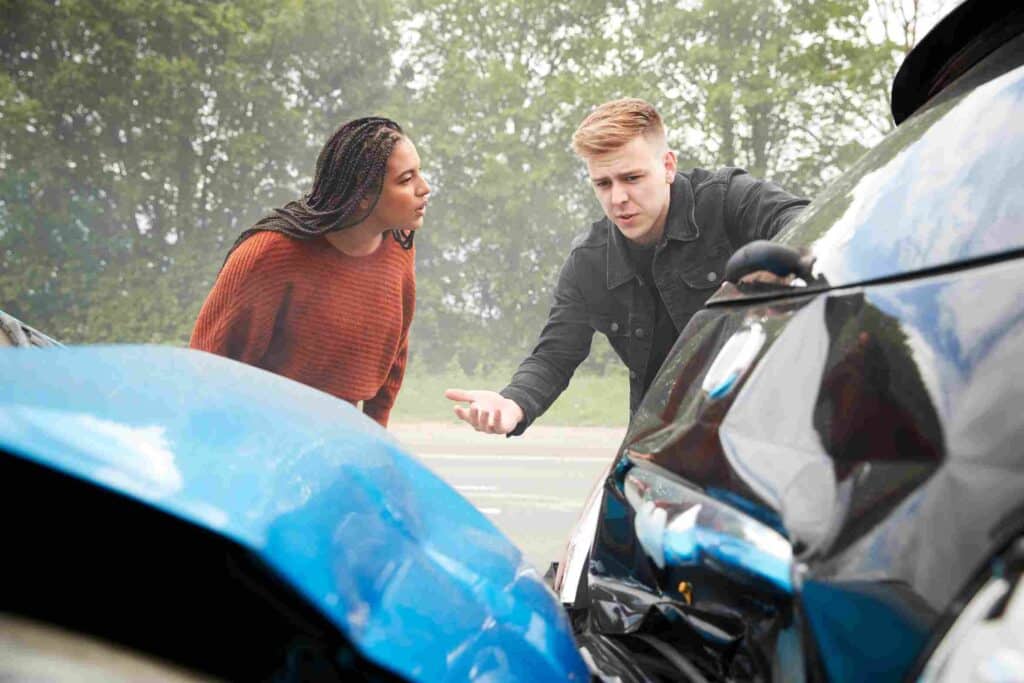Beyond the fact that car accidents can result in injuries ranging from significant to minor, the aftermath can be extremely stressful. The entanglements with insurance companies, the police, and the other drivers can be taxing on your time, energy, and finances.
In the hours and days after a car accident, crash victims are usually overwhelmed by the number of questions they have – and discouraged by the small number of answers. At Nelson Personal Injury, we have seen all types of accidents in our years of experience helping crash victims, and we are here to help. Here are 5 of the most common questions that car accident victims have for attorneys, and most importantly, the answers.
1. What Should I Do Right After The Accident?
The first and most important thing after an accident is to seek medical treatment for any injuries. Call 911 right away, and tell the dispatch if there is a need for immediate medical help. After your immediate medical needs are addressed, and police have been called, you should document as much information about the accident as possible. This includes, but is not limited to: the names and contact information of the involved parties, the insurance information of the involved parties, names and contact information of witnesses, and photos of the vehicles and the area where the crash occurred.
2. Who Will Pay For The Damages To My Vehicle?
In the majority of car accident cases, one party is designated as “at fault,” and the insurance company for the at-fault party is responsible for paying repair costs, or the fair market value of the vehicle if it has been deemed a “total loss.” People who carry “collision coverage” on their own vehicle also have the option of going through their own insurance company to have their vehicle repaired or be paid for the fair market value if the vehicle has been totaled. If you go through your own insurance company, typically you must pay your deductible. Your insurance company will then try to recoup what it paid from the at fault driver’s insurance company, and you will be reimbursed for your deductible at that time.
3. If I Have Medical Bills As A Result, How Do I Pay Them?
Minnesota is a no-fault state. What this means is that every owner of a motor vehicle needs to carry no-fault insurance coverage. No-fault insurance coverage is there to pay for the first $20,000 in medical expenses that are incurred if you are injured as a result of the maintenance or use of a motor vehicle. Your no-fault insurance company is only responsible, however, for medical treatment that is reasonable in cost, medically necessary to treat your injuries, and that is related to the motor vehicle collision. Once your no-fault medical coverage is exhausted, then typically, your own health insurance will step in and pay for any ongoing medical expenses. Consulting with a personal injury attorney early in the process can also help ensure that your no-fault benefits are set up appropriately, and that the correct companies are paying for your medical expenses.
4. Will My Case Go To Trial?
It is typically in the interest of all parties to reach a settlement before the case goes to trial due to the risk and expense involved. Because of this, the vast majority of personal injury cases are settled outside of court without ever needing a trial. Your lawyer will first try to settle your claim prior to having to start a lawsuit. If the case cannot be settled, then a lawsuit must be commenced to try to force the insurance company to pay more to settle your claim. Through the lawsuit process, there are several opportunities to reach a settlement with the defendant, their lawyer, and their insurance company. Courts typically order that the parties attend a mediation, whereby a neutral, third party mediator works with the parties to try to reach a settlement. If the case does not settle at mediation, the judge will sometimes work with the parties to reach a settlement. Settlements can be reached at any time, and sometimes are even reached the day the trial is scheduled to begin.
5. How Long Will It Be Until Everything Is Resolved?
Unfortunately, there is no hard and fast rule for how long any given case will take to be resolved. Timing of settlements and resolution is typically a product of a number of different factors that differ from case to case, including, but not limited to: the nature and extent of the injuries; the type of treatment being pursued; when a doctor will be able to give an opinion about the permanency of the injuries; the insurance coverages involved; whether liability is disputed; whether experts such as an accident reconstructionist or a life care planner need to be involved; whether a lawsuit needs to be started; the complexity of the legal issues involved; and the jurisdiction where the case is venued. Some cases can settle in a relatively brief and orderly fashion, while others can take years. The most important thing to remember is that some cases may take time in order to build the case up to obtain the maximum value of the case. An experienced personal injury attorney will make sure you understand the process and understand the reason why your case may be taking a certain amount of time.
Consult With An Experienced Personal Injury Attorney
The personal injury attorneys at Nelson Personal Injury understand that personal injury claims can be difficult – especially in the case of a complicated car accident. That’s why we work hard to make sure you feel heard, and that you get the compensation to help you get on the road to recovery. If you have questions about an accident involving you or a loved one, contact the car accident lawyers at Nelson Personal Injury: nelsonpersonalinjury.com.




